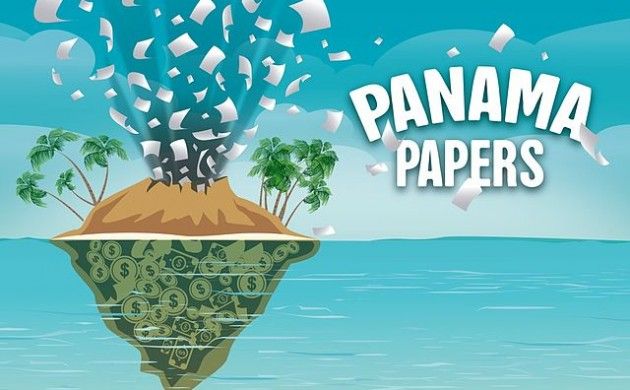Danish research from the University of Copenhagen has documented that 40 percent of surplus from multinational companies ends up in tax havens.
The research is produced by the two Danish PhD students, Thomas Tørsløv and Ludvig Wier, in collaboration with the noted French economist, Gabriel Zucman.
“Our research shows that about 40 percent of surplus generated by the multinational companies is moved every year to countries that have a low taxation,” Thomas Tørsløv, told Berlingske newspaper.
“It’s long been discussed how to calculate these streams of funds from multinational firms to tax havens. We’ve done something as dull as to look into national accounts based on new OECD figures and we’ve landed on a conservative estimate of 40 percent based on new calculation methods.”
READ MORE: Danish connection unearthed in latest tax haven leak
Billions in Bermuda
The research looks into the amount of profit created by the private sector in countries, as well as how much wage is paid. These key figures give an idea about the relationship between a company’s activities in a country and its surplus in that country.
They can then see a significant different in surplus for local and multinational companies.
“There is less profit for multinational companies in non-tax havens, while multinational companies operating in tax havens have abnormally high profit compared to their wage costs. In short, the local ice cream vendor in Bermuda has a normal surplus, while Google has an abnormal surplus on the island,” said Tørsløv.
A specific example of this was seen in Ireland in 2015, where the difference between surplus and wages was at 800 percent in 2015 for multinational companies. Normally, the difference would be at 30-40 percent.
Billions out of EU
That’s the result of big international conglomerates such as Apple, Google, Nike and Starbucks shifting their surplus to tax haven nationals like Ireland or Bermuda to avoid paying much tax on the surplus. Google Alphabet, a holding company for Google, registered a surplus of 19.2 billion US dollars in 2016 – and that’s without any noteworthy activities or employees on the island.
It is estimated that these tax moves by the big firms cost the EU some 450 billion kroner every year – 20 percent of company tax income. In fact, since 1985 the average global company tax percentage has fallen from 49 to 24 percent as countries lower taxes to remain competitive.
”It’s a clear picture: The companies move profit without moving activities. That’s why we call it ‘paper profits’ as the surplus only exists in Excel and is simply shifted around to where it’s most advantageous,” said Tørsløv.
The tax haven issue has risen into the spotlight in recent years thanks to the Panama Papers and Paradise Papers leaks.
Dreaded caterpillar hits Bornholm
Several people on Bornholm were forced to seek medical help at the local hospital after coming into contact with toxic oak processionary moth caterpillars over the weekend. The caterpillars are covered in thousands of toxic hairs that it can emit from itself if bothered and the hairs can cause rashes, itchiness and respiratory problems. The authorities warned citizens to stay away from the handball-sized caterpillar webs in the trees near Dueodde and to avoid touching the caterpillars, dead or alive. Pets and other animals can also become very ill from sniffing the larvae. The caterpillars are usually found in southern Europe, but lately the larvae have been discovered further up north, including in the UK.
Firemen busy as drought continues
The ongoing drought in Denmark has fire stations across the country working overtime as the lack of rain has made the dry landscape more susceptible to fire hazards. According to the authorities, there have been 469 nature fires in the first half of July alone – an average of 31 fires every day – easily surpassing the previous mark for the entire month which stood at 449. While the authorities maintain that they have put out all the fires so far, they admit to not possessing equipment allowing them to fight fire from the air.
Denmark invests in Bolivian wind
The government as announced that it intends to invest 300 million kroner into wind turbine parks in Bolivia. The parks are scheduled to be completed by 2020 and will provide green energy to about 1 million people. Bolivia has a goal to provide stable energy supply to 95 percent of its population by 2020. Vestas has been charged with building the parks – the first project for the Danish wind energy giant in Bolivia. More specifically, the parks will be located near Santa Cruz and will produce a total of 108 MW. Some 11 million people live in Bolivia, one of the poorest countries in South America.
B&O turns it around
The Danish tech company Bang & Olufsen has managed to turn several years of downturn into a positive financial year for 2017-2018. Turnover increased by 11 percent and profit by 81 million kroner compared to the previous financial year, which saw a deficit of 117 million kroner. B&O head Henrik Clausen said the turnaround was down to a change in business model, the launch of innovative products and a boost in branding and distribution. It’s the first profit for the company since the 14-15 financial year and it expects an increase in turnover of at least 10 percent for next year. The company has 284 shops in Europe, 14 in North America, 31 in China and 81 in the rest of the world













